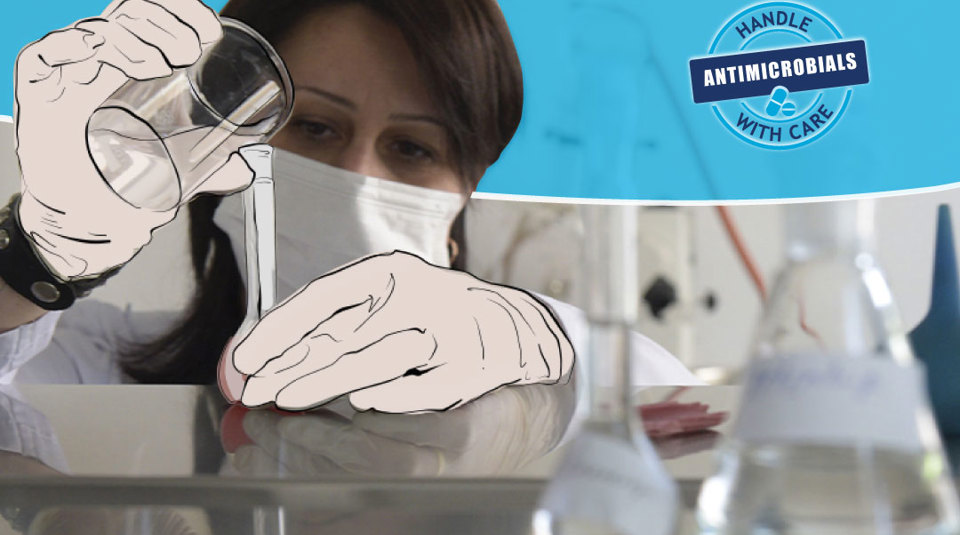World Antimicrobial Awareness Week (18-24 November) is a global campaign held annually to raise awareness of antimicrobial resistance, encourage best practices to protect the effectiveness of antimicrobials, and reduce the emergence and spread of drug resistance.
Antimicrobials are medicines used to prevent and treat infections in humans, animals and plants. Drug resistance occurs when microbes, such as bacteria, viruses, fungi and parasites, evolve over time and no longer respond to antimicrobial medicines. As a result of drug resistance, antimicrobial medicines become ineffective, and infections become increasingly difficult or impossible to treat.
Drug resistance occurs in every part of the world, including Aotearoa New Zealand. While our rates of drug resistance are relatively low compared to many other countries, there is no room for complacency. In Aotearoa drug resistance is on the rise for some microorganisms and the consequences are grave. Resistant microbes can infect anyone, of any age, but the most vulnerable like children, the elderly, and people with weakened immune systems are hit first and hardest. Also, increased drug resistance can make surgical procedures more dangerous because of the increased risk of post-operative infection.
ESR’s world-leading scientists are at the forefront of this complex issue. As the specialist centre tasked with national surveillance of antibiotic resistance in human pathogens, ESR helps to identify rare and emerging resistant bacteria submitted by hospital and community laboratories, and in doing so, collects data and generates valuable information for government and health agencies.
This expertise in infectious disease and antimicrobial resistance also informs the national approach to understand and prevent drug resistance. Earlier this year, ESR Senior Scientist Dr Kristin Dyet contributed to PM Chief Science Report about AMR. The report was written by an expert panel of clinicians and scientists, and they advocated for increased collaboration between the medical, veterinary, and agricultural sectors to tackle drug resistance. While surveillance of resistant microbes for human health is an established system, there isn’t regular surveillance of microbes from animals, plants, and the environment.
Kristin explains that increased surveillance in these sectors is essential. "Our vision is to establish an integrated surveillance system that brings together information on microbes including drug-resistant microbes across human, animal, and plant health. This will provide us with enhanced information to detect emerging microbes early and to inform the implementation of public health interventions, which reduce the burden of infectious diseases including those from outbreaks."
The need for partnership between these different areas echoes the call from this year’s WAAW campaign, that we can work to “prevent antimicrobial resistance together.” And this collaboration goes beyond scientific research, because every one of us has a role to play in tackling drug resistance. For example, you should only use antibiotics when prescribed by a certified health professional and follow your health provider’s advice to take the whole course of antibiotics. It’s also important to never share or use leftover antibiotics.
We can also reduce drug resistant infections by preventing infections in the first place. Measures include regularly washing hands, preparing food hygienically, avoiding close contact with people who are unwell, practising safe sex, and ensuring vaccinations up to date.
This World Antibiotic Awareness Week, ESR hopes to amplify the message that we all have a role to play. Think about ways that you can prevent antimicrobial resistance and act to ensure that antibiotics continue to work now and into the future.

